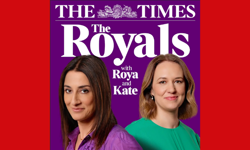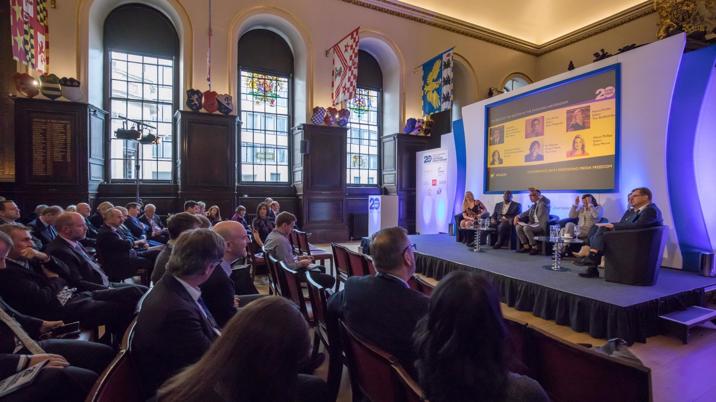
The video made in 2009 to mark the 10th anniversary of the founding of the Society of Editors was very much a male affair, highlighting the testosterone of Paul Dacre, editor of the Daily Mail, then at the height of his powers.
Roll on a decade to the 20th anniversary conference in the seventeenth century headquarters of the Worshipful Company of Stationers and Newspaper Makers and something remarkable has changed.
The major impact came from a group of powerful woman who included Alison Phillips, the first woman editor of the Daily Mirror since 1903, Tracy De Groose, executive chair of Newsworks, the newsbrands marketing body, and Professor Lucy Kueng senior research fellow at the Reuters Institute, Oxford University.
For good measure, the new president of the Society is Alison Gow, digital editor-in-chief for the regional division of Reach, although she is not the first female president of the organisation. There were also considerable contributions from Elizabeth Denham, the Information Commissioner and Alessandra Galloni, global managing editor of Reuters.
By coincidence, during the course of the opening session, a tweet appeared on delegates’ smart phones and became the focus of coffee-break gossip – the Financial Times had just appointed its first woman editor in 131 years, Roula Khalaf.
Female national newspaper editors are still in a minority, but apart from Phillips, Khalaf joins Kath Viner of The Guardian and Victoria Newton of the Sun on Sunday and she will surely not be the last.
The speaker who made the greatest impact – you might even say showed the greatest “balls” – was former advertising executive De Groose, now campaigning for the newspaper industry to wake up and start telling its own vital story.
We must learn to tell one unified industry story, more powerfully, more consistently and more frequently.
Show me the money
She told the editors present that we are at a critical crossroads for the news industry and it really is time to start talking about money.
De Groose reprised the relatively well known numbers that 44 million read news journalism every week in the UK across newspapers and digital devices, 4-5 million more than a decade ago and the same weekly reach as Google.
She lambasted the industry for failing to talk enough about total readership, thereby allowing the story of declining newspaper circulations to dominate the media agenda.
De Groose believes, with a lot of evidence to back her up, that there is now a window of opportunity for newsbrands to transform their economic outlook and regain some of the £1 billion lost to amorphous digital advertising over the past ten years.
Newsworks research shows 69 per cent of people trust their chosen news brand, while social media trust languishes at 29 per cent.
Edelman’s Trust Barometer shows that trust in established news brands grew from 48 per cent in 2017 to 60 per cent this year, while according to advertising industry figures, trust in advertising has slumped from 50 per cent to 25 per cent – an all-time low.
According to De Groose, digital advertising is broken, and the concept of content, has been hijacked by “the bullshitters, the propogandists and the fakers”.
As a result, quality journalism has been lumped together with this other sort of “content” and then sold to advertisers.
The De Groose appeal to the industry is to take advantage of shifting, positive, attitudes and not let the opportunity pass by.
“We must learn to tell one unified industry story, more powerfully, more consistently and more frequently,” said De Groose who appealed for the industry to give the oxygen of publicity to “get our side of the story out there”.
Soon after the Society conference, the Newsworks executive chair complained at the United Nations forum on Business and Human Rights that despite online advertising being dominated by four or five platforms, there is no system of global governance.
Now is the time, she argued, for politicians, regulators and advertisers to create a better internet where people can know “their experiences are genuine, safe and real”.
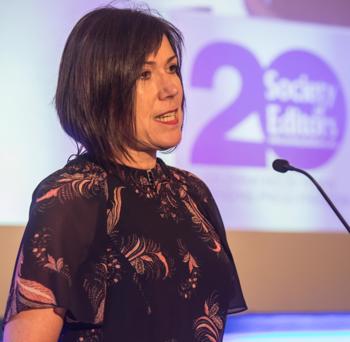
Nurture and develop
Prof Kueng, an expert on strategy, innovation and leadership, warned that if newsbrands are to make the most of the digital opportunity and future-proof newsrooms, publishers must properly value and develop their staff.
There was clear evidence that the most successful organisations are those that identify and effectively develop their talent.
Newsrooms were exhausted after two decades of change.
“But the thing you have that other organisations would kill for is the calibre of your people,” said the Reuters Institute researcher in a panel chaired by Gow.
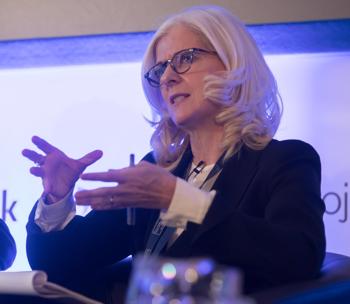
They do, however, have to be nurtured, particularly the millennials who tick differently.
“They are insisting on a different way of leadership from their bosses. They want lots of mentoring, lots of feedback, lots of progress. They won’t stay long, but they value it, and have a real sense of purpose. They are enormously driven and these people are the path to growth,” Kueng argued.
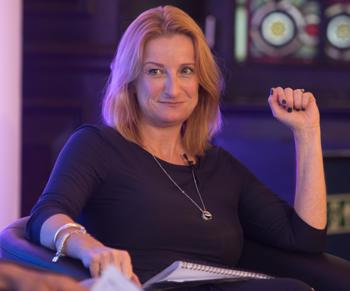
Integrating the Express
Phillips, in a contribution that could have considerable relevance for the Daily Mail and General Trust’s £50 million purchase of the i newspaper, and maybe other takeovers to come, explained how she coped with the Reach acquisition of the Express and Star newspapers.
Above all, Phillips said she wanted the Daily Mirror and the Daily Express, with their different political traditions, to avoid losing their identity and becoming “a big grey mush”.
Protocols were drawn up and boundaries set about what copy could be shared, affecting departments such as sport, fashion, picture desks and with sharing TV listings.
Some exclusives and campaigns are shared but governed by agreed rules.
“I can’t think of a single letter that we’ve had or email or phone call from a reader complaining about our involvement with the Express,” Phillips said.
Nancy Fielder, editor of The Star in Sheffield, described how she urged her reporters to get out of the newsroom because that’s where journalism happened.
The job of journalists is to get out and get stories and let other people worry about filling backend pages, said Fielder, who added that she saw her role as fighting for her local patch and her journalists who now do “everything that journalists used to do and 20 things more”.
One of the narrow majority of male speakers at the conference, Yorkshire Post editor James Mitchinson, told how trying to redress a gender imbalance in the sports department turned out to be not as easy as it looks. An advertisement for a football reporter produced no female applicants. A further ad saying he would like to appoint a woman, controversial in itself, produced applicants but the job still went to a man.
There was clear evidence that the most successful organisations are those that identify and effectively develop their talent.
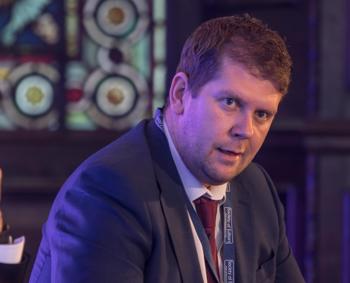
Covering terrorism
The major male contribution came from Neil Basu of the Metropolitan Police, and the senior officer in charge of counter terrorism policing in the UK.
Basu, who said he had wanted to be a journalist as a kid but had been too shy at the time, delivered a rare police apology – of sorts.
The assistant Metropolitan Commissioner commented on what many newspaper editors saw as a police threat to freedom of expression over the leaked cables of Sir Kim Darroch, the former UK ambassador to Washington.
Basu publicly threatened editors with prosecution and himself came under attack.
“Knowing what I know now, would I have done it all again? Yes. Would I have done it differently? Yes,” said Basu who suggested that maybe picking up phones to editors might have been a better approach to warn them that there is currently no public interest defence to breaches of the Official Secrets Act.
But his main task, speaking just over two weeks before the latest terrorist atrocity on London Bridge, was to appeal to newspapers to modify their coverage of terrorism as they had in the reporting of suicide.
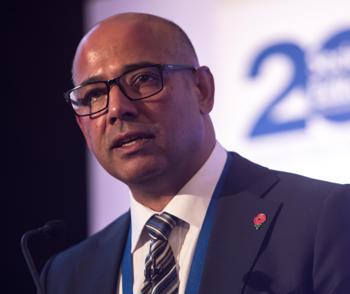
Basu said that the Royal United Services Institute (RUSI) has found significant empirical evidence – though the literature was not conclusive – that media reporting can be the tipping point to radicalism and recruitment or carrying out a violent act through social contagion or publicity seeking.
Basu does not like streamed footage from the scene, publishing terrorist manifestos or signposting dangerous chat rooms.
The response of editors will also probably be far from conclusive.
Jonathan Calvert, Insight editor of the Sunday Times highlighted another unplanned consequences of the rise of social media. It has made undercover journalism really difficult because if you have an orthodox social media presence, your targets can look you up in a second.
If you want to pretend to be someone else, you have to set up fake websites and Twitter accounts and make them look plausible.
At the conference, Calvert seemed coy about the controversial issue of the non-appearance of the report into alleged Russian interference in UK politics.
The reason became clear the very next Sunday when the main contents of the report were leaked.
Calvert’s ultimate boss Rupert Murdoch, in a recorded message, thanked the Society for a special award to mark the Sun’s 50th anniversary and its championing of good causes that has raised £100 million.
“Free speech is vital to a functioning democracy and a right so precious that it should be cherished. Everyone here has a responsibility to give a voice to the voiceless and empower the powerless,” the executive chair of News Corporation said.
There was also an important feminine strand to the 20th anniversary dinner awards.
Broadcaster and journalist Kate Adie was given a lifetime achievement award. The Sunderland-born Adie said that journalism is a pillar of society.
“It matters, and we will all work to keep it strong, a vibrant pillar that reflects society, that informs people and gives people the truth,” insisted Adie.
Everyone here has a responsibility to give a voice to the voiceless and empower the powerless.
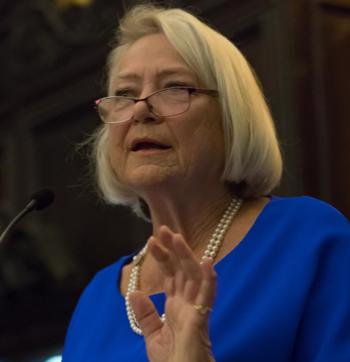
This article was first published in InPublishing magazine. If you would like to be added to the free mailing list, please register here.








